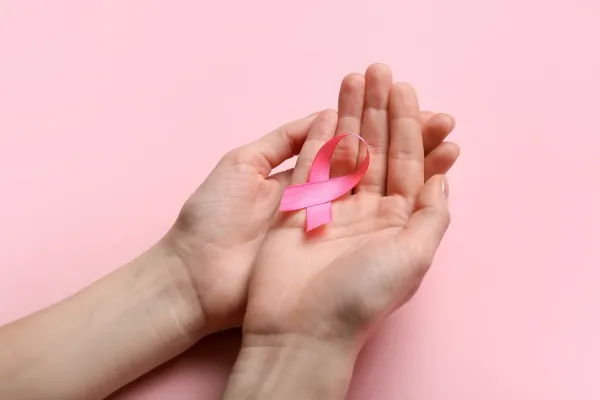Topics
Cancer, one of the most significant health challenges worldwide, remains a leading cause of death, with nearly 10 million lives lost in 2022 alone. Despite advancements in treatment, addressing the risk factors that contribute to cancer and adopting preventive measures are critical in reducing its occurrence and recurrence.
Let’s explores the risk factors associated with cancer and practical lifestyle changes that can help minimise these risks health and well-being. By understanding and addressing these factors, we can work toward not only preventing cancer but also improving outcomes for survivors.
What Is Cancer?
Cancer is a disease that can begin in almost any organ or tissue in the body whereby abnormal cells grow out of control and spread to neighbouring parts of the body, and/or other organs. The latter process is called metastasis and is one of the leading causes of death from cancer.
How Prevalent Is Cancer in Malaysia?
Cancer is the second leading cause of death worldwide. Did you know that approximately 1 in 10 people in Malaysia will receive a cancer diagnosis in their lifetime?
The most common cancer types in men are:
The most common cancer types in women are:
What Are the Risk Factors for Developing Cancer?
Research has identified numerous factors that may increase an individual’s risk of developing cancer. These include smoking, being overweight or obese, being physically inactive, eating poorly, and drinking excessively.
Some cancer deaths could be prevented by modifying or avoiding key risk factors and implementing existing evidence-based prevention strategies. The cancer burden also can be reduced through early detection of cancer and treatment of patients who have developed cancer. Prevention also offers the most cost-effective long-term strategy to fight cancer.
Answer questions on this Cancer Risk Quiz and discover how to reduce your cancer risk.
What Can I Do to Reduce My Cancer Risk?
By adjusting avoidable or modifiable cancer risk factors, almost 1 in 4 new cancer cases in Malaysia can be avoided.
Here are the 10 ways to reduce your cancer risk.
- Stop smoking. Smoking causes many types of cancers, including lung, mouth, and throat cancers. So, stay away from smoking. Or if you smoke, quit now.
- Maintain a healthy weight. Keeping your weight in check might reduce your risk of 13 different types of cancers.
- Consume plenty of fruits, vegetables, and whole grains in your diet. Avoid sugary drinks, and minimize your intake of salt, saturated fats, and processed meat.
- Being physically active has been linked to a reduced risk of cancer. Do your best to include at least 30 minutes of exercise in your daily routine each day.
- Drinking alcohol excessively can increase the risk of getting mouth, throat, liver, oesophageal, colon, and breast cancer. Limit your alcohol intake.
- Avoid prolonged exposure to sunlight or other sources of ultraviolet radiation. Remember to use sun protection such as sunscreen if you are out and about.
- Keep away from industrial and environmental toxins.
- Follow your doctor’s advice if you are on hormone replacement therapy.
- Protect yourself and your loved ones from infections through vaccination. For example, the human papillomavirus (HPV) vaccine can be effective against cervical cancer.
- Get yourself screened for cancer. For example, breast cancer screening with mammography, cervical cancer screening with pap tests, and colon cancer screening with colonoscopy.
Is Cancer Survivable?
Cancer screening aims to identify individuals without symptoms but with abnormalities suggesting a potential cancer or pre-cancer, thus enabling timely referral to a cancer specialist for diagnosis and treatment.
Detecting cancer early enhances the probability of a positive response to effective treatment, leading to increased chances of survival, lower morbidity, and more cost-effective interventions for those diagnosed with cancer. Early diagnosis identifies cases with symptoms at their initial stages.
An individual’s cancer prognosis (an estimate of how a disease will affect an individual) can be determined by numerous factors:
- Type of cancer and location in the patient’s body
- Cancer stage (size of the tumour and if it has migrated/spread to other areas of the patient’s body)
- Cancer grade (level of the cells’ abnormality)
- Certain characteristics of the cancer cells
- Patient’s age
- Patient’s health status
- Patient’s response to cancer treatment
What Are the Treatment Options for Cancer?
Surgery, chemotherapy, radiotherapy, hormone therapy, immunotherapy, and targeted therapy are cancer treatment modalities.
A multidisciplinary team of medical professionals – medical oncologists, radiation oncologists, and surgical oncologists – may decide to use one or a combination of therapies based on the following factors:
- Type and extent of tumour involvement (tumour factor, staging)
- Treatment goals
- Patient characteristics (health status, age, co-morbidities)
- Evidence and guidelines
- Patient preference
- Cost
How Can I Cope with Cancer?
Being diagnosed with cancer can be very frightening. There is the fear that the cancer treatment will not be successful, that the cancer will return, that it will be painful, and that you may not survive. All these feelings are normal and very understandable.
It will assist your recovery if you have a positive attitude towards your diagnosis and treatment. Some people find that prayer or meditation helps. Others enjoy the company of people with whom they can share their feelings and explore the meaning of their experience with the illness.
All agree that what matters most is love, laughter and taking pleasure in the simple things in life.
How do I deal with fatigue?
Many people with cancer have fatigue. Fatigue may affect how you feel about yourself, your daily activities, your relationships with others and whether you can continue with cancer treatment. Symptoms of fatigue may be physical, psychological, or emotional.
Treatments for fatigue in cancer include managing its symptoms and providing emotional support. Some symptom-related treatments may include adjusting the amount of pain medication, giving blood transfusions or growth factors, adding iron and vitamins to your diet, or prescribing anti-depressants.
How do I deal with pain?
Not everyone with cancer has pain, but if you do have pain, there are many ways to treat it. Although pain cannot always be relieved completely, treatment will reduce the discomfort for most people with cancer.
There are many different types of pain medication, and different types of pain require different types of medicine. Management of cancer pain is individualised, and your doctor may prescribe a combination of medicines for your pain. To start with, regular pain medication is given, but if the pain lasts or increases, your doctor may ‘step up’ to stronger pain medication.
How do I deal with fever?
Fever can be a challenge for cancer patients. The main causes are infections, tumour cells (which can produce substances that cause fever reactions), graft-versus-host-disease (in which transplanted tissue attacks your own tissue), and some medications.
Along with treating the cause of the fever, some comfort measures may also be helpful in relieving the discomfort of chills and sweats. During periods of fever, drink plenty of liquids, remove excess clothing and bed linens, and bathe regularly with lukewarm water to provide relief.
During periods of chills, replace damp blankets with warm dry blankets, keep away from drafts and adjust the room temperature to improve your comfort.
How do I deal with constipation and diarrhoea while I undergo cancer treatment?
Constipation and diarrhoea can be caused by your cancer or by the treatment. For constipation, prevention with laxatives is the best treatment.
If you have diarrhoea, your doctor will identify and treat the problems causing it. For example, if your diarrhoea is caused by laxatives taken to prevent constipation, you may need to reduce the dose or stop taking the medication.
How do I deal with nausea and vomiting while I undergo cancer treatment?
Although treatments for cancer are continually improving, nausea and vomiting continue to be of concern. Treatment for anticipatory nausea and vomiting is often successful when the symptoms are treated early.
The following methods may reduce your symptoms:
- Guided imagery
- Hypnosis
- Relaxation
- Behavioural modification techniques
- Distraction (such as playing video games)
Acute and delayed nausea and vomiting are most commonly treated with anti-nausea drugs.
Make an Appointment at Pantai Hospitals
A dedicated and expert team of oncologists at Pantai Hospitals is available for consultation to provide the best care and assistance to patients through cancer screenings, diagnosis, and treatment.
Get in touch with us to book an appointment with an oncologist today. We assure you the best possible care tailored to your specific needs.
Pantai Hospitals have been accredited by the Malaysian Society for Quality in Health (MSQH) for its commitment to patient safety and service quality.













